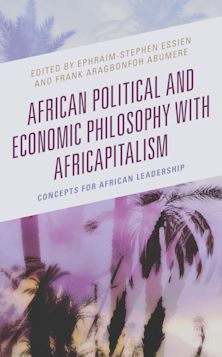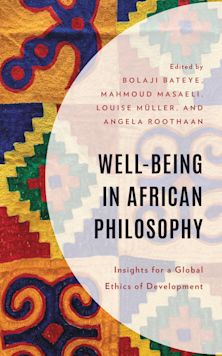Partiality and Impartiality in African Philosophy
Partiality and Impartiality in African Philosophy
This product is usually dispatched within 1 week
- Delivery and returns info
-
Free US delivery on orders $35 or over
Description
Partiality and Impartiality in African Philosophy fills the lacuna in African philosophy literature on the inherent tension between requirements of partiality (favoritism) and impartiality (equality). Motsamai Molefe deploys two strategies to philosophically resolve the tension between partiality and impartiality. The first strategy involves applying the moral theories of Kwasi Wiredu, Thaddeus Metz, and Kwame Gyekye to the problem. Finding their views useful in some ways and seriously limited in others, Molefe turns to the second strategy in which he invokes the salient normative concept of personhood in African cultures. Molefe argues that the concept of personhood adjoins theories of human dignity and moral perfection (virtue). The major insight that emerges is a robust ethical theory qua personhood that accommodates both partiality and impartiality. He grounds requirements of impartiality on human dignity, which operates largely as a macro-ethical concept that normatively informs the character of our social institutions (politics). Politics is characterized by fairness, equality, and impartiality. Partiality (the agent-and-other-centred forms of it) is directly connected with the agent’s chief moral duty to achieve her own virtue (moral perfection), which operates as a micro-ethical concept. These two kinds of moral partialism, self-favoritism and close ties such as family, are justified by appeal to the project's view, instead of the individuals-and-relationships view typically invoked to justify moral partiality in the literature.
Table of Contents
Preface
Acknowledgments
Introduction: The Missing Debate on Partiality and Impartiality in African Philosophy
Chapter One: Kwasi Wiredu on Partiality and Impartiality
Chapter Two: Partiality and Impartiality in Metz’s Moral Philosophy
Chapter Three: Kwame Gyekye’s Moral Philosophy on Partiality and Impartiality
Chapter Four: Conclusion: Highlighting Major Themes
Chapter Five: Personhood and Morality in African Philosophy
Chapter Six: Ethics of Personhood: Partiality and Impartiality in African Philosophy
Conclusion
References
Index
About the Author
Product details
| Published | Nov 10 2021 |
|---|---|
| Format | Hardback |
| Edition | 1st |
| Extent | 180 |
| ISBN | 9781498599436 |
| Imprint | Lexington Books |
| Dimensions | 9 x 6 inches |
| Series | African Philosophy: Critical Perspectives and Global Dialogue |
| Publisher | Bloomsbury Publishing |
Reviews

ONLINE RESOURCES
Bloomsbury Collections
This book is available on Bloomsbury Collections where your library has access.


































